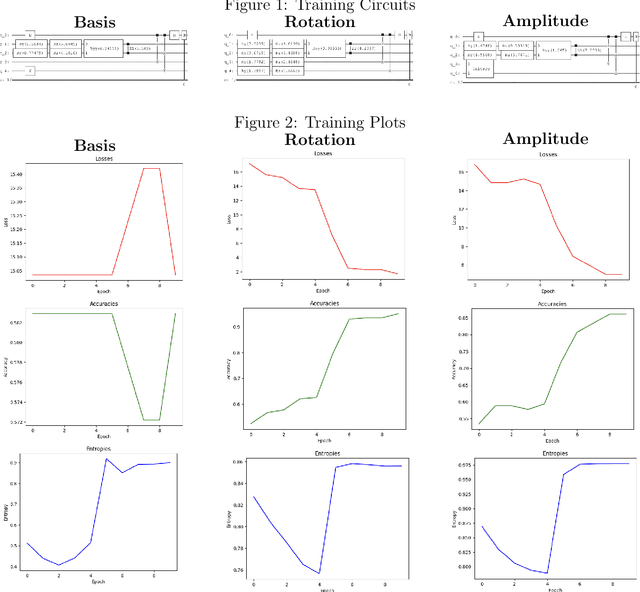Comparing Quantum Encoding Techniques
Paper and Code
Oct 11, 2024


As quantum computers continue to become more capable, the possibilities of their applications increase. For example, quantum techniques are being integrated with classical neural networks to perform machine learning. In order to be used in this way, or for any other widespread use like quantum chemistry simulations or cryptographic applications, classical data must be converted into quantum states through quantum encoding. There are three fundamental encoding methods: basis, amplitude, and rotation, as well as several proposed combinations. This study explores the encoding methods, specifically in the context of hybrid quantum-classical machine learning. Using the QuClassi quantum neural network architecture to perform binary classification of the `3' and `6' digits from the MNIST datasets, this study obtains several metrics such as accuracy, entropy, loss, and resistance to noise, while considering resource usage and computational complexity to compare the three main encoding methods.
 Add to Chrome
Add to Chrome Add to Firefox
Add to Firefox Add to Edge
Add to Edge